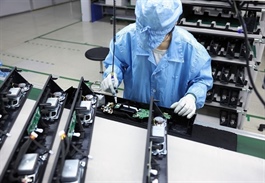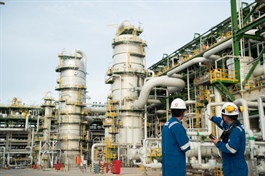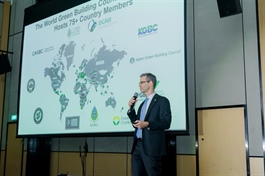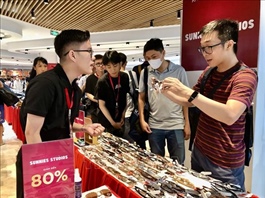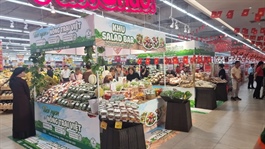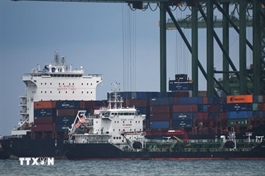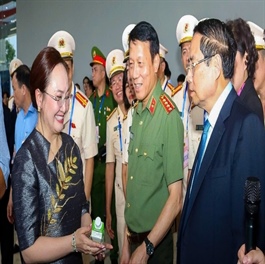Businesses contend with eco-label certification issues
Businesses contend with eco-label certification issues
Businesses have reported difficulties in obtaining eco-label certification for their products due to complex regulations, which impact the launch of new products.
The Ministry of Agriculture and Environment (MoAE), in late July, announced and updated the list of products and services certified with the Vietnam Eco-Label.
In 2024, eco-label certification was granted to seven brands from various facilities and businesses. As of June 20, an additional six brands received this certification. The certified brands are valid for 36 months from the date of issuance.
To obtain the eco-label certification for environmentally friendly plastic packaging, manufacturers must meet specific criteria regarding raw materials, components, and fuels.
The MoAE requires certified entities to continuously meet the eco-label criteria for environmentally friendly plastic packaging, as registered and certified under legal regulations. They must also submit annual reports to the MoAE for guidance and inspection as required.
However, many businesses have reported challenges in the certification process due to its complexity.
“We see that many processing companies use their materials to produce packaging and biodegradable bags. However, these manufacturers still need to obtain eco-label certification for the materials. The issue is that they must declare and conduct tests to obtain certification, a process that takes 3-6 months and is often costly. This extended certification process disrupts product launches and affects business operations,” said Do Hong Hanh, CEO of BUYO Bioplastics.
BUYO provides a 100 per cent nature-based and biodegradable bioplastic solution, using advanced proprietary tech to convert bio-waste and plant-based materials into plastics.
Additionally, businesses face unfair competition, as some companies falsely claim to provide green-labelled products that do not meet the required standards.
“For example, some supermarkets and retail chains display and sell supposedly biodegradable bags that only fragment rather than fully biodegrade, posing greater environmental risks than conventional plastic bags,” said Hanh. “Due to insufficient enforcement and lack of widespread standards, consumers struggle to distinguish genuine products. This creates an unfair competitive environment for businesses and confuses consumers, as distinguishing between products requires specialised knowledge.”
As a result, BUYO Bioplastics and many other environmentally friendly package manufacturers have called for support from consumers and state management authorities through the introduction of incentive mechanisms. They also urge stronger involvement from retailers to raise consumer awareness.
A representative of the Institute of Strategy and Policy on Agriculture and Environment said many packaging manufacturers share similar concerns.
“It is reasonable to require certification because manufacturers may use only 75 per cent biodegradable plastic materials, with the remainder consisting of various plastic additives that can alter the product’s composition. Different blending methods among businesses lead to varying biodegradability rates on eco-labels, justifying the need for raw material certification,” the representative said.
“We also usually visit supermarkets and retail chains to check the labels of packages. If we find inconsistencies in displayed labels with labels registered with the state management authorities, we will report the companies to fix the information on labels,” she added.
VAccording to a roadmap issued in 2022, starting from 2026, the production and import of difficult-to-biodegrade plastic bags with dimensions smaller than 50x50cm and a thickness less than 50µm are prohibited, except for the case of production for export, or production/import for packaging products for sales in the market.
Nguyen Le Trung, vice chairman of An Phat Holdings and general director of An Phat Xanh Plastic JSC, said Vietnam’s plan after 2030 to stop producing single-use plastic products will expand opportunities for enterprises producing environmentally friendly plastic.
“It is estimated that about 500,000 tonnes of single-use plastic products being consumed on the market are banned from use and need to find alternative products, then only biodegradable bags can completely meet the demand,” Trung said.
- 11:00 22/08/2025




